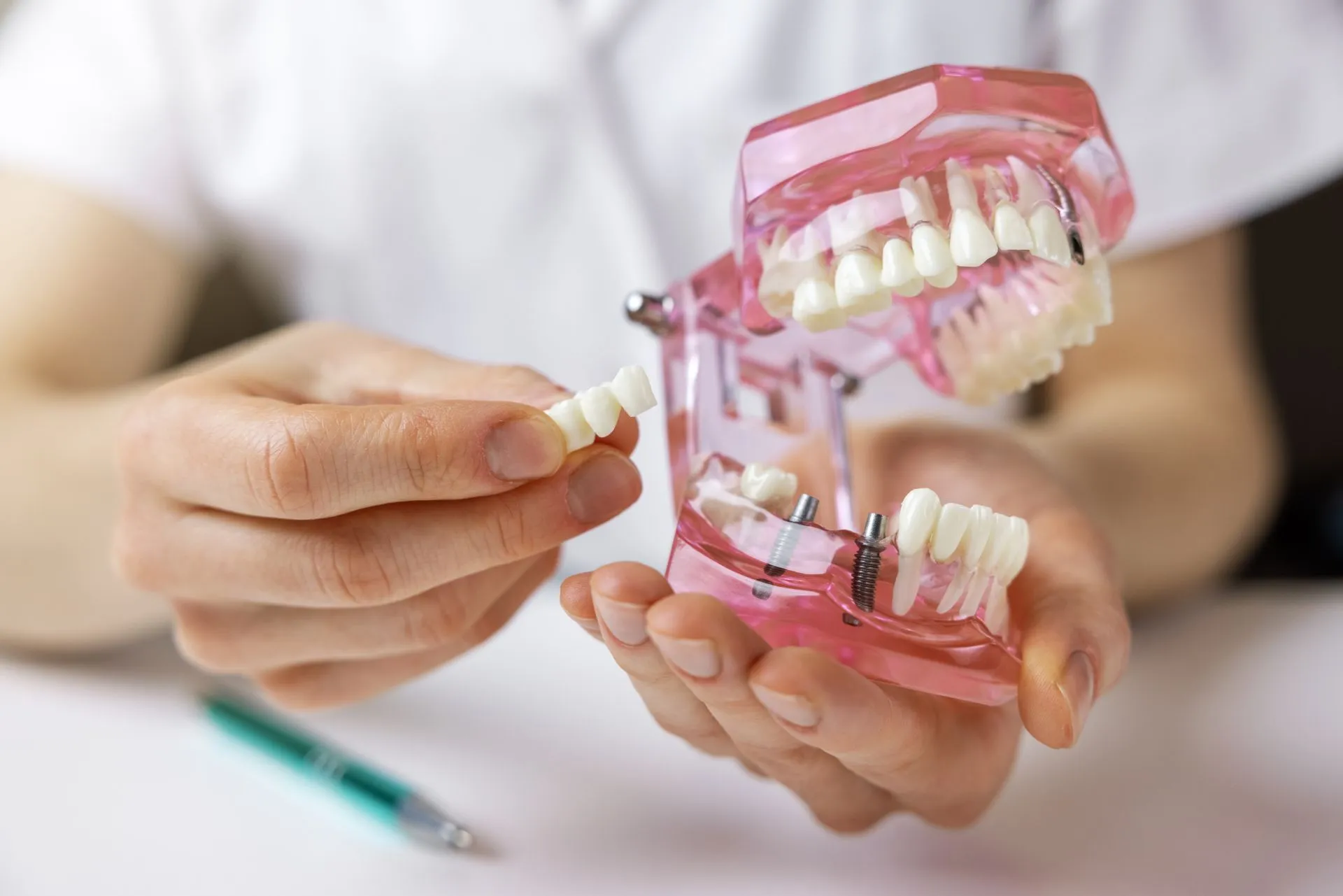
02 Sep 3 Signs You Need a Tooth Replacement
A tooth replacement involves restoring missing or severely damaged teeth through various dental procedures, including dental implants, bridges, or dentures. When a tooth is lost due to injury, decay, or disease, it creates more than just a cosmetic concern. Here’s information on when you may need a tooth replacement:
1. Alignment Issues
Missing teeth create gaps that disrupt the natural balance of your dental structure, leading to significant alignment problems that can worsen over time. When you lose a tooth, the surrounding teeth begin to shift into the empty space. This movement occurs gradually but inevitably, causing your bite to become misaligned.
Bite Misalignment
Tooth replacement procedures are used to add structure to the mouth, stopping teeth from shifting. Teeth shifting affects your entire bite pattern, changing how your upper and lower teeth come together when you close your mouth. These changes can become pronounced enough to affect your ability to chew effectively.
Wear Patterns
The altered bite mechanics caused by missing teeth create uneven pressure distribution across your remaining teeth. Some teeth bear excessive force during chewing, while others receive insufficient stimulation. This imbalance leads to accelerated wear on certain teeth, potentially causing them to become worn down, cracked, or damaged. Increased stress on specific teeth can also lead to tooth erosion.
2. Temporomandibular Joint Dysfunction
Missing teeth significantly impact the complex mechanics of your temporomandibular joints (TMJ), which connect your lower jaw to your skull and enable smooth jaw movement. The absence of teeth forces your jaw to work harder to achieve proper contact during chewing and speaking. Your jaw muscles compensate for the missing tooth by adjusting their movement patterns, often resulting in muscle strain and fatigue. This compensation can cause your jaw to move in unnatural ways, placing excessive stress on the temporomandibular joints.
Altered jaw function can lead to TMJ dysfunction over time, characterized by jaw pain and clicking or popping sounds when opening and closing your mouth. You may experience headaches, ear pain, or facial muscle tension as the dysfunction affects surrounding tissues. The jaw may also lock in position, making it difficult to open or close your mouth normally.
3. Infection or Injury
Severe dental infections or traumatic injuries often necessitate immediate tooth replacement to restore proper oral function. When a tooth becomes severely infected, the damage may extend beyond the crown into the root and surrounding bone tissue. Root canal therapy may not be sufficient if the infection has compromised too much of the tooth’s structure or if the surrounding bone has been significantly affected. In these cases, extraction becomes necessary to eliminate the source of infection and prevent it from spreading to other teeth or into the bloodstream.
Traumatic injuries from accidents, sports, or falls can fracture teeth beyond repair or knock them out entirely. Even if a portion of the tooth remains, the damage may be too extensive to restore with traditional fillings or crowns. Both infected and injured teeth can benefit from replacement options because they:
- Maintain Proper Oral Function
- Prevent Bone Loss in the Jaw
- Restore the Ability to Chew and Speak
Learn More Tooth Replacement Options
Tooth replacement procedures offer benefits like restoring proper chewing function and enabling you to maintain a balanced diet. They help preserve the alignment of your remaining teeth by preventing the shifting that occurs when gaps are left unfilled. Replacement options also preserve the bone density of your jaw, which naturally decreases when tooth roots are absent. Contact a dentist today and find out how tooth restoration options can benefit your oral health.

No Comments